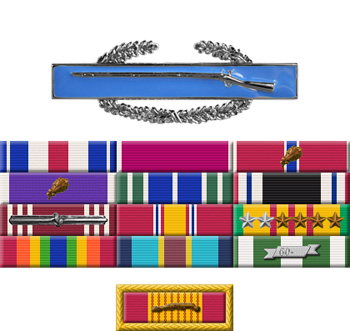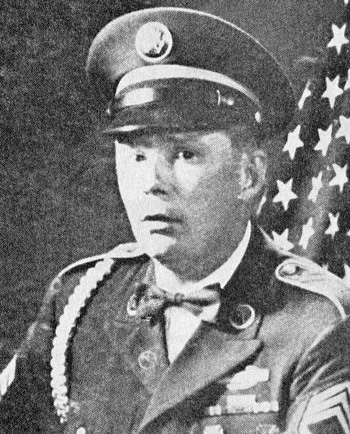
|
Martin S. Frank |
 |
|||
| Rank, Service | ||||
Master Sergeant E-8, U.S. Army |
||||
| Veteran of: | ||||
|
||||
| Tribute: | ||||
Martin Frank was born on July 11, 1941, in Mountclair, New Jersey, and was raised in Belleville, New Jersey. He enlisted in the U.S. Army on April 5, 1966, completed Basic Training at Fort Dix, New Jersey, in June 1966, and advanced infantry training at Fort Polk, Louisiana, in October 1966. Sgt Frank's first assignment was as an infantryman with Company B, 1st Battalion, 12th Infantry Regiment of the 4th Infantry Division in South Vietnam from October 1966 until he was captured and taken as a Prisoner of War on July 12, 1967. After spending 2,064 days in captivity, SSG Frank was released during Operation Homecoming on March 5, 1973. He was briefly hospitalized to recover from his injuries at Fort Monmouth, New Jersey, and then served as an Army Career Counselor at Fort Monmouth from September 1973 to October 1974. SFC Frank next served as a Career Counselor in Japan from October 1974 to July 1975, followed by service with the U.S. Army Infantry Center at Fort Benning, Georgia, from July to December 1975. He then cross-trained as a Patient Care Specialist at Fort Sam Houston, Texas, from December 1975 to April 1977, and served as a Ward Master at Brooke Army Medical Center at Fort Sam Houston from April 1977 to September 1982. His next assignment was as a Ward Master with the 31st Combat Support Hospital in West Germany from October 1982 to October 1984, followed by service as a Ward Master back at Brooke Army Medical Center at Fort Sam Houston from November 1984 until his retirement from the Army on May 1, 1987. Martin Frank died on April 3, 2008, and was buried at the Fort Sam Houston National Cemetery in San Antonio, Texas. |
||||
|
||||

